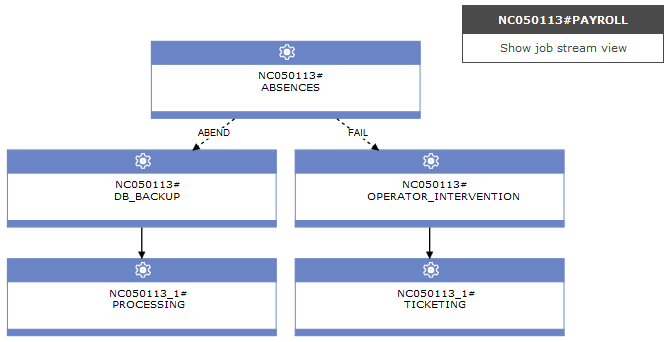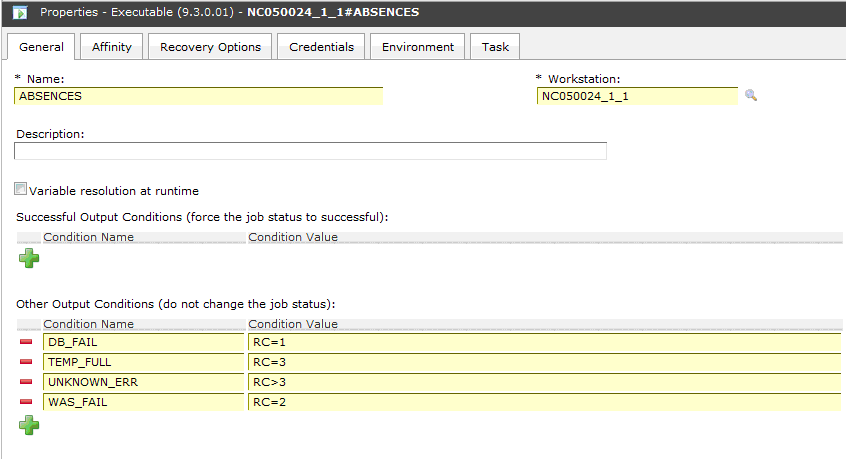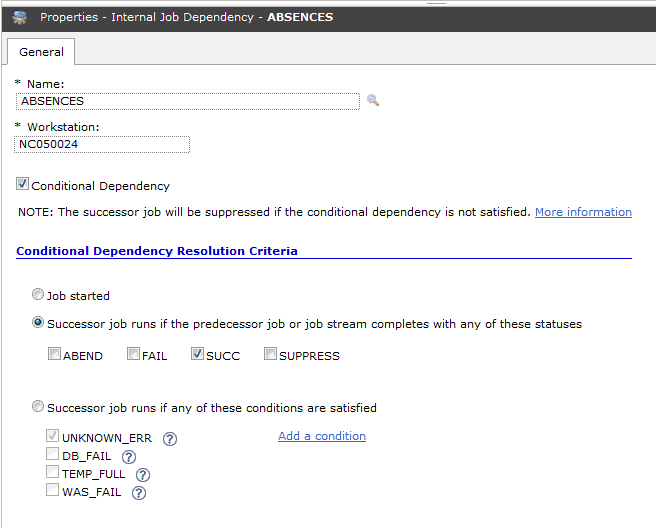Applying conditional branching logic
With HCL Workload Automation you can define jobs to run when and as often as necessary. Sometimes some jobs might have to wait for other jobs to finish successfully before they start. Add even more flexibility to your job flows by choosing which job to run depending on the result of the job status or output of a previous job. Whenever you have conditions that specify whether or not a segment of your job flow should run, then that is a conditional dependency.
When specifying dependencies, you can define job flows with alternative branches based on conditions, specifically to achieve the same results as using IF/THEN/ELSE statements. You can use return codes, job status, output variables, and job log content as conditional logic elements to determine the start of a successor job. In addition to providing flexibility to your job flows, the Graphical View provides a graphical representation of the relationships between the jobs and job streams, including the dependencies and conditions. This at-a-glance view of your job flow is easy to read and you can also edit your job flow from this view.

- Status conditions
- These are conditions based on job status, such as if the job started, or if the job completes in FAIL, ABEND, SUCC, or SUPPR state. For job streams, the valid statuses are SUCC, SUPPR, and ABEND.
- Other output conditions
- Other types of conditions, including successful output conditions,
can be specified using a mapping expression, which can be:
- A return code (fault-tolerant and dynamic agents)
- Output variables (dynamic agents)
- Job log content (dynamic agents)

You can define both successful output conditions, conditions that when satisfied signify that the job completed successfully, and other output conditions, which when satisfied determine which successor job to run. The output conditions are evaluated in "OR".

You can also join or aggregate conditional dependencies related to different predecessors. A join contains multiple dependencies, but you decide how many of those dependencies must be satisfied for the join to be considered satisfied. You can define an unlimited number of conditional dependencies, standard dependencies, or both in a join.
Conditional dependencies are supported only for dependencies where the predecessor is a job or a job stream in the same network and where all the components are at least at the Version 9.3 Fix Pack 2 level. They are not supported on internetwork dependencies, nor on Limited Fault-Tolerant Agents for IBM i.